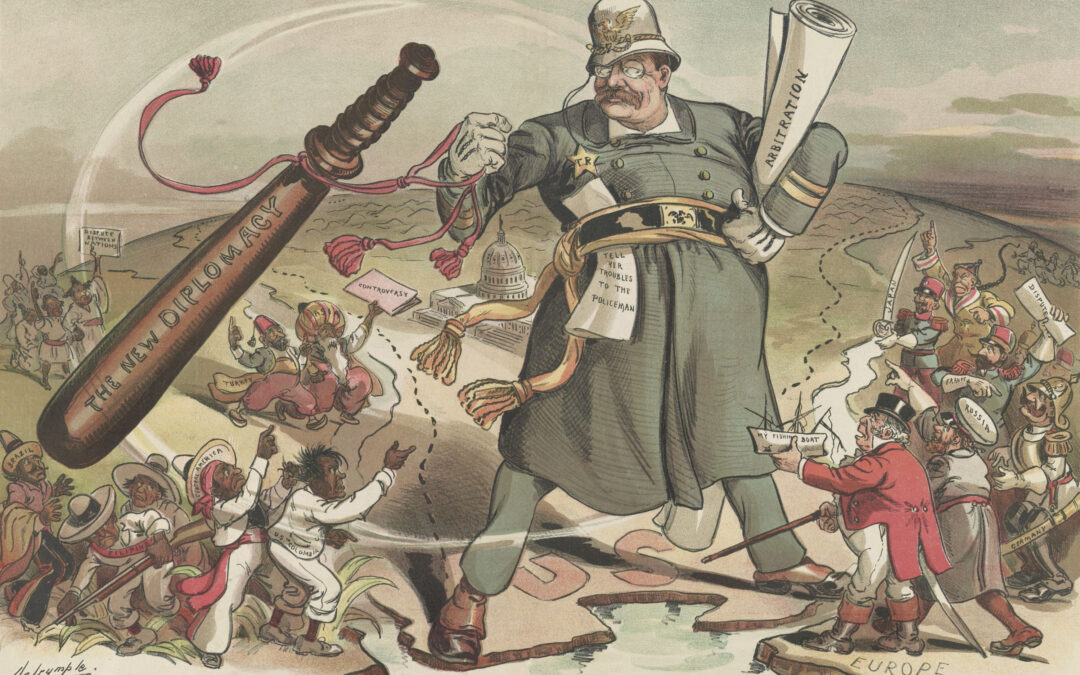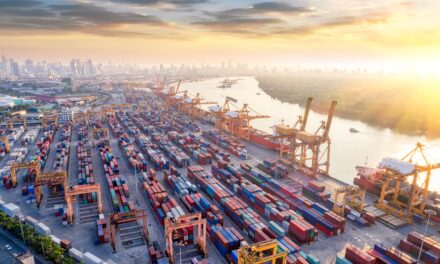The Monroe Doctrine was a key tenet in early American politics … creating a safe buffer around the Western hemisphere to prevent foreign empires from setting up shop just next door.
Over time, our leaders gradually started to see the Monroe Doctrine as being outdated, completely doing away with it in the process of globalization.
But now, President Trump is bringing back his own version of the Monroe Doctrine. Except instead of insulating us from European powers, he’s aiming to protect America from a different threat entirely.
Click the video below for the full story:
Video transcript:
Welcome to Moneyball Economics, I’m Andrew Zatlin.
Well, let’s talk about the Monroe Doctrine.
It’s alive and kicking in the Trump administration these days. Let’s talk about why we are pursuing it so strongly now and what the implications are for oil investors downstream.
Right off the bat, when we talk about the Monroe Doctrine, we’re talking about the assertion by the United States that Latin America and South America are regions of our interest and don’t muck around in them, and so we have about 200 years of history where we muck around in those countries but nobody else can.
And lately, well, there are a bunch of targets where we have gone after both a carrot and stick approach to get them on our side.
Let’s start off with Venezuela. We have sent the US Navy down off the waters of Venezuela, and we have been attacking ships, blowing them out of the water, not capturing, but just blowing them out of the water.
13 ships so far, 57 people killed, and it’s not stopping. In fact, we put a $50 million bounty on the head of President Maduro back in August to ratchet up the heat even further. We have publicly talked about sending in CIA strike teams into Venezuela itself to go after the cartels.
Look, this is nothing more or less than regime change while publicly, the assertion is that it’s a narco-terrorist state, a crypto-terrorist state, whatever you want to call it.
The reality is Venezuela is very much not on the side of the United States, but it’s not a narco-terrorist state. This is about regime change. Right now, Venezuela is in bed with Russia, with Iran and China, and we don’t like it, but why are we taking action? Well, Venezuela has some of the world’s largest reserves of oil. They’re offline, mostly because we sanctioned them, but they still have a lot of oil, and oil is very important to the Trump administration.
Cheap energy is the key to enabling a manufacturing renaissance, but it’s not always the stick, even if it’s always about oil or resources in general. See, in Argentina, we approached them with a carrot. We like what Milei is doing. We like the way Milei, the recently elected leader of Argentina is pro-US, pro-western values, pro-Capitalism. We love him so much, we lent $40 billion and basically bought their election last week. It worked.
So now Argentina is beholden to the US and hopefully there will be traction and it will lead to more and more partnership. What Trump is trying to do is create two poles in South America. We’ve got in the north Venezuela, where he’s trying to squeeze and do regime change and get Venezuela on team USA. And then we’ve got in the South Argentina as well already, team USA. We’re just trying to shore them up, but it doesn’t start and stop there.
Adjacent to Venezuela, we’ve got Columbia that is truly a narco-terrorist state, and Trump is starting to shake the stick at them as well at the same time, time that carrot approach. Well, next door to Argentina is Chile and hey, we’re starting to make nice-nice with Chile.
What is going on here? Why are we so active in South America? Well, partly, like I said, it’s about resources.
When you think about the future, for example, why are we in Chile? Why do we care? Well, world’s largest copper source is in Chile and electric vehicles depend on copper even more so the future of electric vehicles is tied to the future of Chile and tied to whoever has the strongest ability to influence Chile.
So Trump is going down into South America and trying to reorient access to resources. For example, if you can overthrow the government of Venezuela, boom, their oil fields can suddenly be explored and brought online.
Argentina also a major, major, I think it’s the fourth largest untapped oil reserve. I don’t recall the exact rating, but massive untapped oil reserves as well.
The goal of bringing oil online, well, cheap energy, it’s the secret of manufacturing, and it has also downstream impact against our adversaries like Russia and Iran. The more we can bring down and maintain low oil prices, the harder it is for Iran and Russia to cause trouble around the world.
But I’d also like to call your attention to those two poles I mentioned in the north, Colombian, Venezuela in the south, Chile and Argentina.
If you notice, those are all Pacific facing countries. Well, Venezuela not so much, but you have this Pacific facing type of orientation that Trump is trying to influence. Why? Well, because China.
We are recognizing the strategic resource value of South America. China’s already there. They already recognize it.
Their investments in South America are up 35 times in the past 15, 20 years. China is the largest trading partner for major South American countries like Chile, Peru, Bolivia, Brazil, Argentina, you name it. Commercial power is right now in the hands of China and they’re not stopping there. They’re also investing in infrastructure. They’ve been doing a lot of lending, but infrastructure very key, especially with the ports.
Now, ports sound like it’s just another part of an economy infrastructure like power plants. However, via ports, you can track all the stuff that’s going in and out of a country. So it does provide a lot of spy intelligence.
So what Trump is basically doing is while he’s trying to shore up access to all these resources for American companies, he’s simultaneously trying to push China out, which means we’ve got to put a lot more money into South America to make that happen.
Right now, I think the focus is going to be on oil.
Once we get regime change in Venezuela, and as we start to sort of overwhelm the Chinese investing opportunities in South America, downstream effect is you’re going to start seeing deals being cut with Chevron and Exxon to drill for this oil. You’re going to see all these drillers out there suddenly flowing in.
Look, it’s hard to imagine if oil goes down that drillers are going to chase after the opportunity to drill, but the reality is it’s going to happen. We’re going to see drilling going on in Venezuela again, we’re going to see more drilling going on in Argentina. Someone’s got to be doing that drilling, and I suspect that part of the quid pro quo that’s going on is Trump is going to insist that these are American companies leading right now. It’s not always the case.
We’ve got a lot of companies in there that are well super corrupt. And going forward, we want it to be less corrupt for American businesses to go down there. Bottom line, I am saying that the US is trying to assert dominance into South America, get access to resources and in particular oil, and that’s going to lead six months from now, nine months from now, when there is finally regime change in Venezuela, it is going to be leading to contracts and agreements for American corporate access to those rich oil fields. I’m thinking drillers.
In the meantime, we’re in it to win it. Zatlin out.

Andrew Zatlin
Editor, Moneyball Economics





